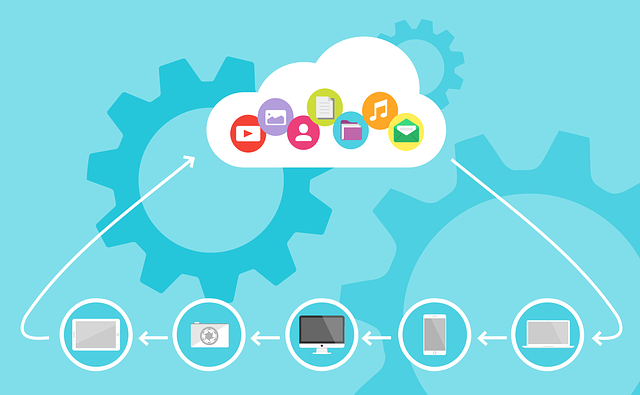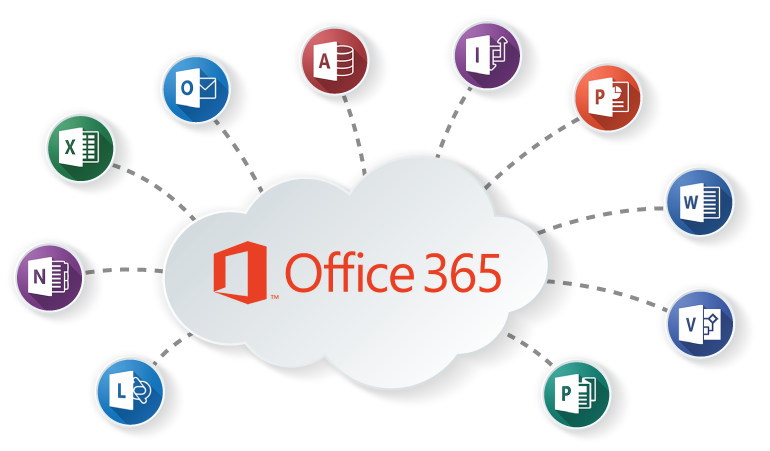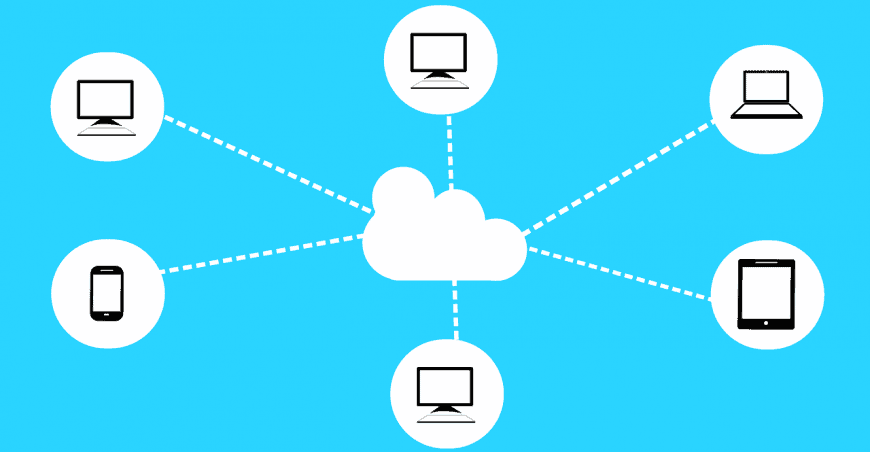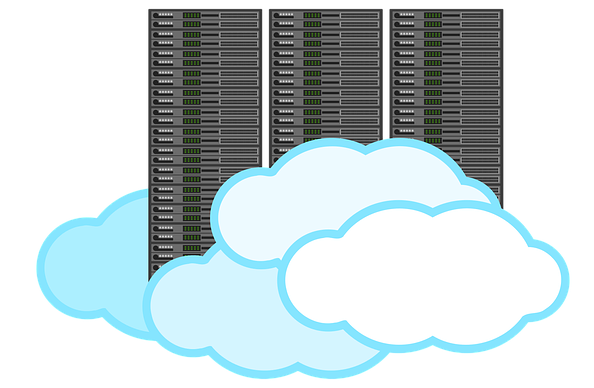Have you ever noticed that every conversation you have about your business’ technology leads to the cloud?
Whether it’s the way you back-up your mission-critical data, power your website, or even carry out day-to-day operations, cloud solutions have changed every aspect of the way we work, and there’s no going back.
Not that anyone would want to.
Faster, smarter, more scalable than anything that’s gone before, the cloud allows us to increase productivity whilst simultaneously reducing IT expenditure.
So it’s not surprising that more and more businesses are continuing to invest in cloud migration, but let’s be honest:
There’s still one thing stopping you from making the move, isn’t there?
Don’t worry, you’re not alone.
For most businesses still relying on a traditional, on-site IT infrastructure, the biggest barrier to cloud migration is a simple one:
A lack of understanding about the different cloud solutions that exist, and the kind of dramatic difference they can make to today’s small businesses.
That’s where we come in.
Here, Pacific Infotech, the leading provider of managed cloud services in the UK, offer our expert advice and insights into what the cloud is, what it can do for you, and how your business can benefit from migrating.
What is the Cloud
Here’s the thing:
The cloud is lots of different things to lots of different people.
To some, it’s simply about file storage and data recovery.
To others, it’s the heart of their business, a set of tools and platforms through which they provide customer services and carry out essential back-office functions.
But look, we get it:
That doesn’t explain what the cloud actually is.
So, here’s the explanation we use when talking to our clients.
The cloud is a vast network of servers through which users can access via the web and use to run applications, store, edit, and retrieve data, or carry out any number of tasks.
In a nutshell, anything you can do on your desktop computer, you can do in the cloud, and more.
Any time you log into your Gmail account, you’re using the cloud.
Any time you use Microsoft Office 365 to type a document, you’re using the cloud.
Any time you upload a new Instagram picture, yep, you guessed it, you’re using the cloud.
For a complete introduction, you might want to check out our blog titled “Finally: Your Complete Beginners Guide to Cloud Computing.
That will give you need to know about cloud computing in general, but today, we’re talking about specifics.
We’re looking at the main types of cloud solutions for small businesses, starting with the difference between the two main ways of accessing those solutions:
 Managed Cloud Services vs.
Managed Cloud Services vs.
First, let’s start with managed cloud services, shall we?
In essence, this means exactly what it sounds like:
A fully-managed approach to ensuring your business enjoys all the benefits of working in the cloud with none of the costs or complications of configuration and migration.
Instead, this work is outsourced to a specialist team who first consult with you to determine your needs before suggesting -and ultimately implementing- a bespoke cloud solution that continues to deliver value for money month after month.
Should something go wrong, your managed services provider will even be there to take care of problems and, where necessary, liaise with the support team from third-party vendors on your behalf.
Imagine the hassle and headaches that could save you.
So, what’s the alternative?
Simple:
The DIY approach.
In other words, you take full responsibility for researching the most suitable cloud providers out there, managing subscriptions, carrying out the often complex process of migration, and dealing with tech support yourself.
Whilst this option may be suitable for tech-savvy small business owners or company’s with their own in-house resources, many SMBs find that a managed approach allows them to focus their time and resources on growing their business whilst still enjoying the benefits of working in the cloud.
What Are the Main Types of Cloud Services?
Remember earlier, when we said that the cloud could be used for everything from typing documents and sending email to storing data?
Well that’s true, but at Pacific Infotech, we found that the majority of small businesses can thrive using a combination of five key cloud solutions:
 Microsoft Office 365
Microsoft Office 365
You don’t need an introduction to Microsoft Office, do you?
The world’s most well-known productivity suite is used by businesses throughout the land. There’s even a chance you’ve got some version of it on your home computer.
But if there’s one thing that’s stopped you from investing in Microsoft Office for your business in the past, it’s the cost, isn’t it?
We don’t blame you.
Traditionally, licenses to run your favourite tools like Word and ExCel cost a small fortune, but that was before Microsoft changed the game by putting the latest version of their productivity suite – Microsoft Office 365 – in the cloud.
Now, you only pay a small per-user/per-month subscription fee for anytime, anywhere access to the tools you need to run your business.
The remote nature means that you and your employees needn’t be confined to the office, leading to more efficient mobile working and even reduced housekeeping costs.
Email Migration to Exchange in the Cloud
As with other Office 365 tools, transitioning from POP/IMAP to cloud email offers the freedom and flexibility to work anywhere, grow your business, and reduce costs.
The best part?
It also ensures increased security and reliability, two critical factors at a time when all businesses need to be hyper-vigilant with regards to cybercrime.
There’s just one small catch:
When you start migrating your email to office 365, you’re going to bump into things like domain management and active directories.
If those don’t have you running for the hills, the complex process of carrying out a migration will.
Here’s the good news:
With managed cloud services, all that technical stuff is taken care of for you.
Simply allow your provider access to your domain and hosting panel, as well as remote access to your PC, then sit back whilst the migration is carried out with as little disruption to your day-to-day work as possible.
 Managed Web Hosting
Managed Web Hosting
What would happen if a customer visited your website only to find that it was offline?
Even if it was down for only the briefest of seconds, that customer is going to hit their browser’s back button and surf on into the waiting arms of your competitors, aren’t they?
Let’s be honest:
That’s something no business can afford.
Managed web hosting, backed by state-of-the-art cloud servers guarantees unbeatable reliability so that you can create a powerful, effective online presence that’s always there for your customers 24/7/365.
DNS and Domain Management Service
Both your email and your websites rely on domains, but managing those domains can take up valuable time, especially when it comes to the complicated process of domain configuration.
A domain management service frees up your time by looking after your entire domain portfolio for you, including the registration of new web addresses and renewals of existing ones, configuring DNS settings (so that your domain name actually points to your website), and integrating domains into Office 365.
 Cloud Servers
Cloud Servers
Do you currently run your own in-house server?
It’s a vast, unwieldy thing, isn’t it?
And let us guess – it probably cost you a pretty penny too, didn’t it?
Worse yet, they really limit what you can do.
Should your business grow, the finite capability of an in-house server may be unable to handle it, meaning an investment in even more servers.
Should that server fail – your entire business is offline.
It’s for this reason that more and more businesses are turning to Virtual Private Servers (VPS) as the future of their business.
Fast, fully-scalable and reliable, managed VPS services offer an affordable alternative for running your applications, saving data, and more.
To find out which server solution may be the best fit for your small business, or for a free consultation on any of the managed cloud services we’ve discussed today, contact Pacific Infotech online. Alternatively, call our team now on 020 313 76707.




